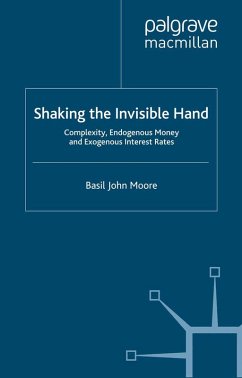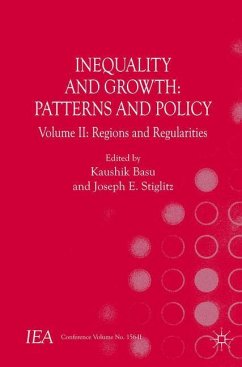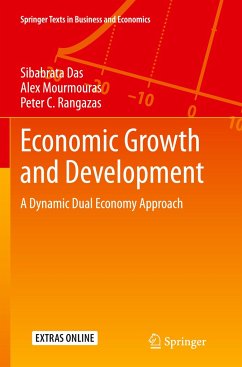
Shaking the Invisible Hand
Complexity, Endogenous Money and Exogenous Interest Rates
Versandkostenfrei!
Versandfertig in 6-10 Tagen
113,99 €
inkl. MwSt.
Weitere Ausgaben:

PAYBACK Punkte
57 °P sammeln!
This book makes the case that economies are complex systems and in response to this, develops a unique dynamic nonequilibrium process analysis of macroeconomics. It provides a brief introduction to complex systems, chaos theory and unit roots. The importance and implications of contingency for economic behaviour are developed.












